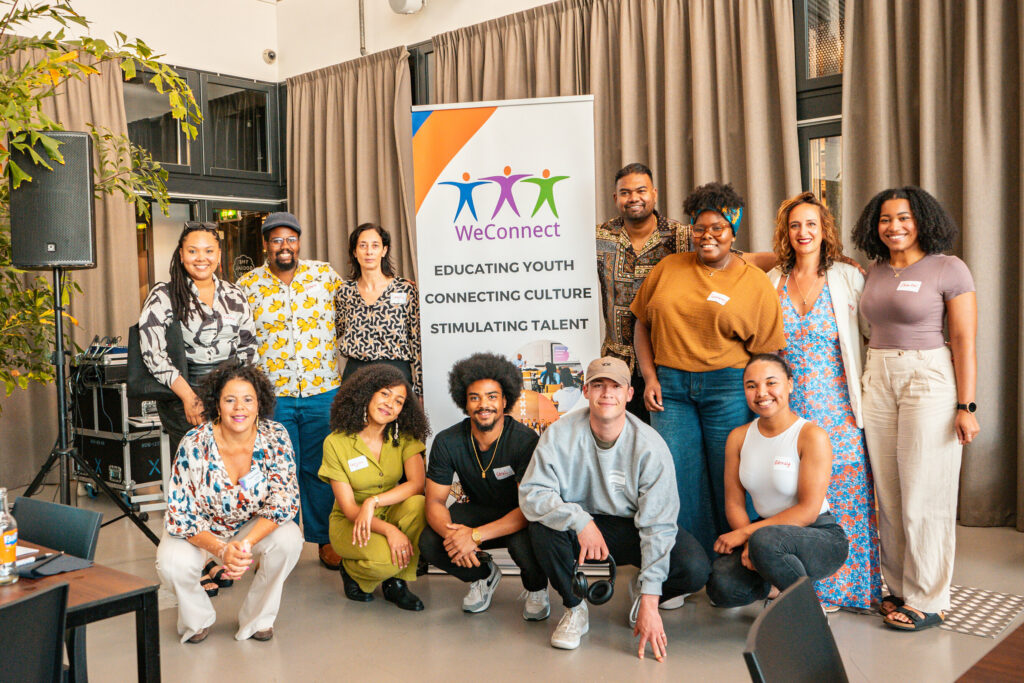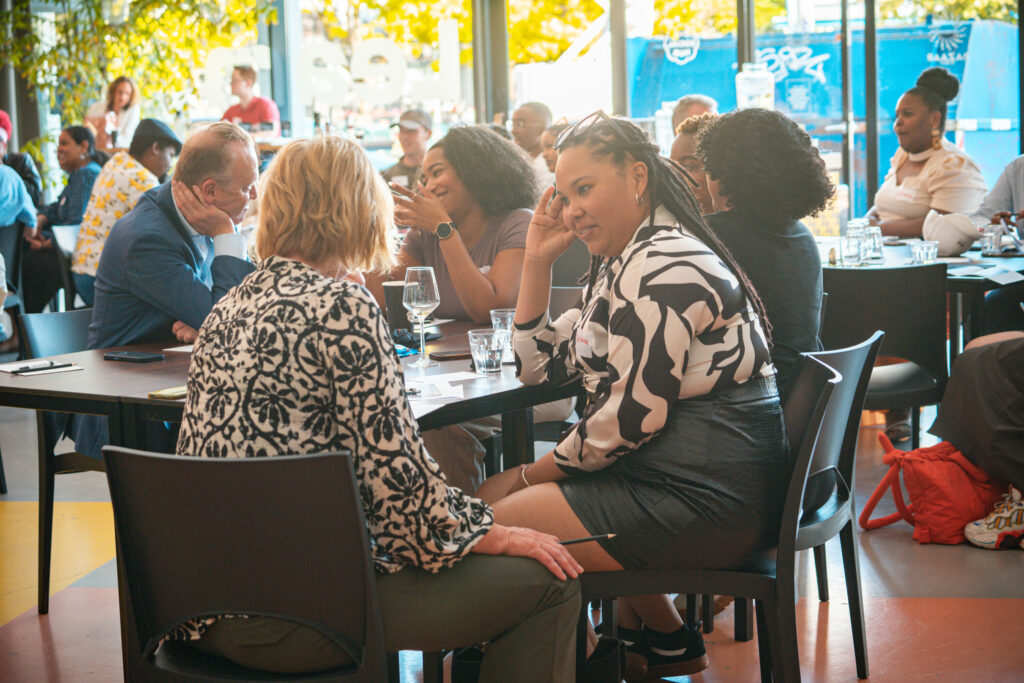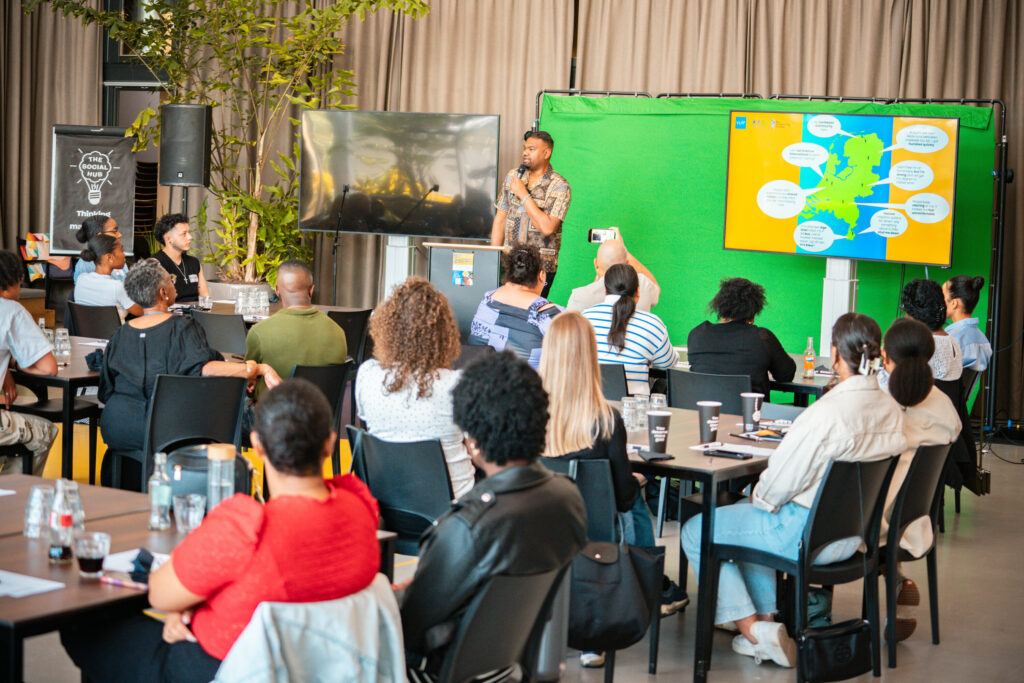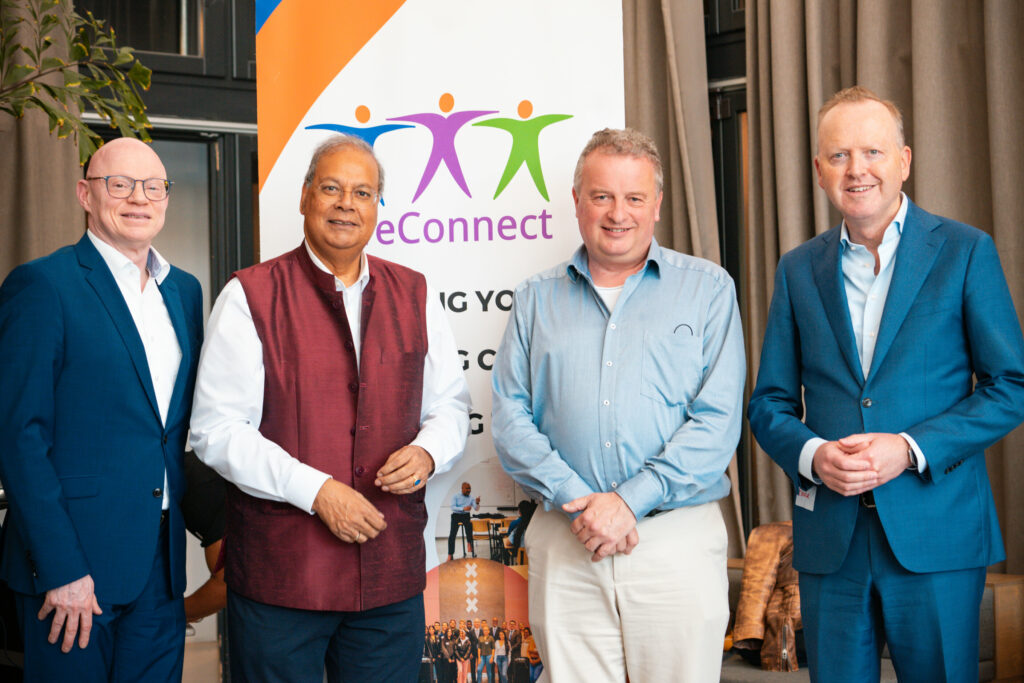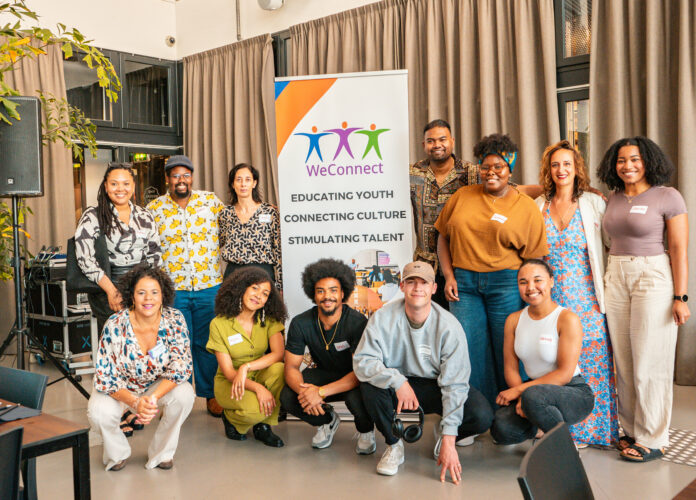‘Can I be here?’ was the pressing question that was central to the event ‘Empowering my Caribbean Identity’ organized by the WeConnect Foundation. The educational foundation brought together about 50 Caribbean students in The Hague on June 28th. To talk about racism, discrimination and feelings of exclusion. It became an open dialogue in which people made themselves vulnerable and at the same time showed their strength.
Painful
The ‘Can I be here?’ question was part of a sketch devised and performed by two WeConnect employees. “Do they see me or just my color?” they asked the attentive audience. Various young people shared their often extremely painful experiences. Being asked about your loyalty to the Netherlands during a job interview. Not being taken seriously as a doctor because you are from Curaçao and then being challenged about your neutrality. Always having an empty seat next to you on the bus, even if people have to stand.
Resilience
Durwin Lynch, lecturer and master’s coordinator in Health Science at the Vrije Universiteit in Amsterdam, led the main part. He let the students talk to each other about moments when they feel strong or not. ‘Embrace yourself’ , was one of his advices and ‘Be authentic’.
“We wanted to strengthen that resilience by offering young people a safe environment to speak out. It is beautiful and moving to see how they do that.” WeConnect manager Tanja Fraai explains.
Actions
One of those present was Rabin Baldewsingh, the National Coordinator against Discrimination and Racism, since 2021. His name also appeared on the infamous lists of the Dutch tax authorities that were part of the benefits affair, he said. What would he see as a concrete action point to accommodate these Caribbean young people? “It would be nice if the Dutch government worked on canceling student debt,” he suggested. Baldewsingh received a loud applause with this remark.
Remembrance year
Director General Roald Lapperre was personally present on behalf of the Ministry of the Interior and Kingdom Relations. He was impressed by the stories. This meeting was part of the commemoration year in which the abolition of slavery was explicitly commemorated. Various activities have been organized both in the Netherlands and in the Caribbean part of the Kingdom. That commemorative year ends on July 1 this year, with the celebration of Keti Koti.
